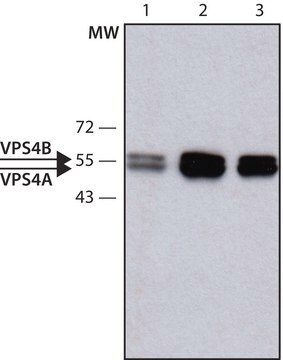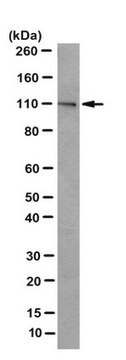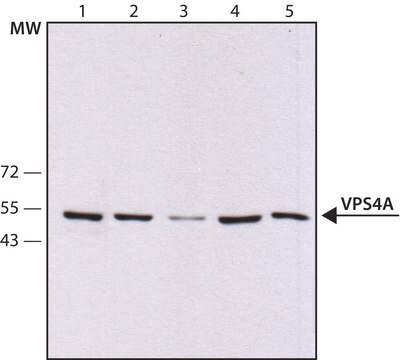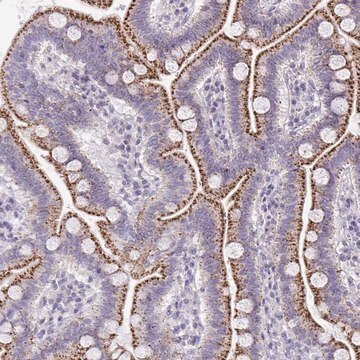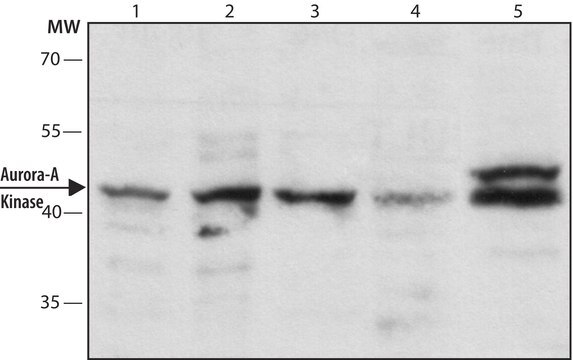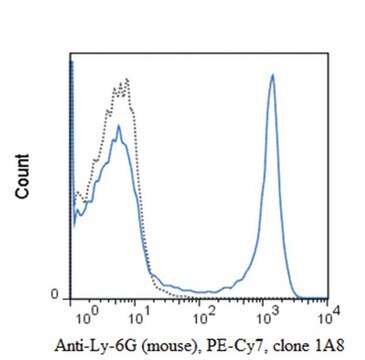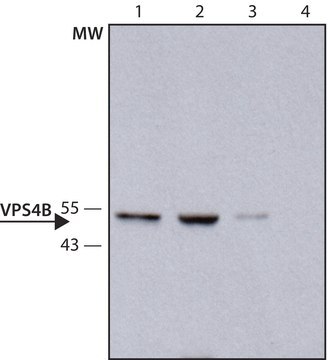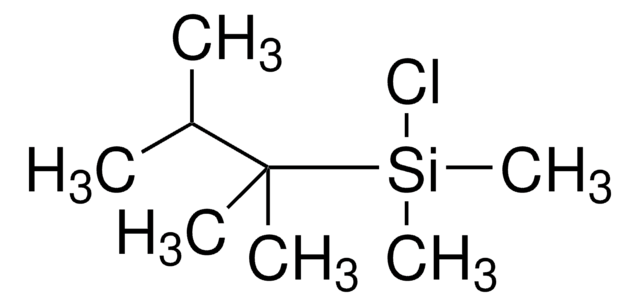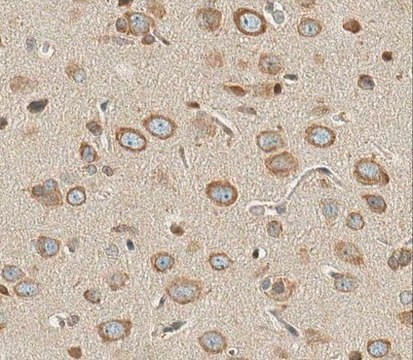MABC83
Anti-Vps4/SKD1 Antibody, clone 5E6.1
clone 5E6.1, from mouse
Synonym(s):
Vacuolar protein sorting-associated protein 4B, Cell migration-inducing gene 1 protein, Suppressor of K(+) transport growth defect 1, Protein SKD1
About This Item
Recommended Products
biological source
mouse
Quality Level
antibody form
purified immunoglobulin
antibody product type
primary antibodies
clone
5E6.1, monoclonal
species reactivity
mouse, human
technique(s)
immunocytochemistry: suitable
western blot: suitable
isotype
IgG1κ
NCBI accession no.
UniProt accession no.
shipped in
wet ice
target post-translational modification
unmodified
Gene Information
human ... VPS4B(9525)
General description
Immunogen
Application
Apoptosis & Cancer
Cell Cycle, DNA Replication & Repair
Quality
Western Blot Analysis: 1 µg/mL of this antibody detected Vps4/SKD1 in 10 µg of human skeletal muscle tissue lysate.
Target description
Physical form
Storage and Stability
Analysis Note
Human skeletal muscle tissue lysate.
Other Notes
Disclaimer
Not finding the right product?
Try our Product Selector Tool.
WGK
WGK 1
Flash Point(F)
Not applicable
Flash Point(C)
Not applicable
Certificates of Analysis (COA)
Search for Certificates of Analysis (COA) by entering the products Lot/Batch Number. Lot and Batch Numbers can be found on a product’s label following the words ‘Lot’ or ‘Batch’.
Already Own This Product?
Find documentation for the products that you have recently purchased in the Document Library.
Our team of scientists has experience in all areas of research including Life Science, Material Science, Chemical Synthesis, Chromatography, Analytical and many others.
Contact Technical Service